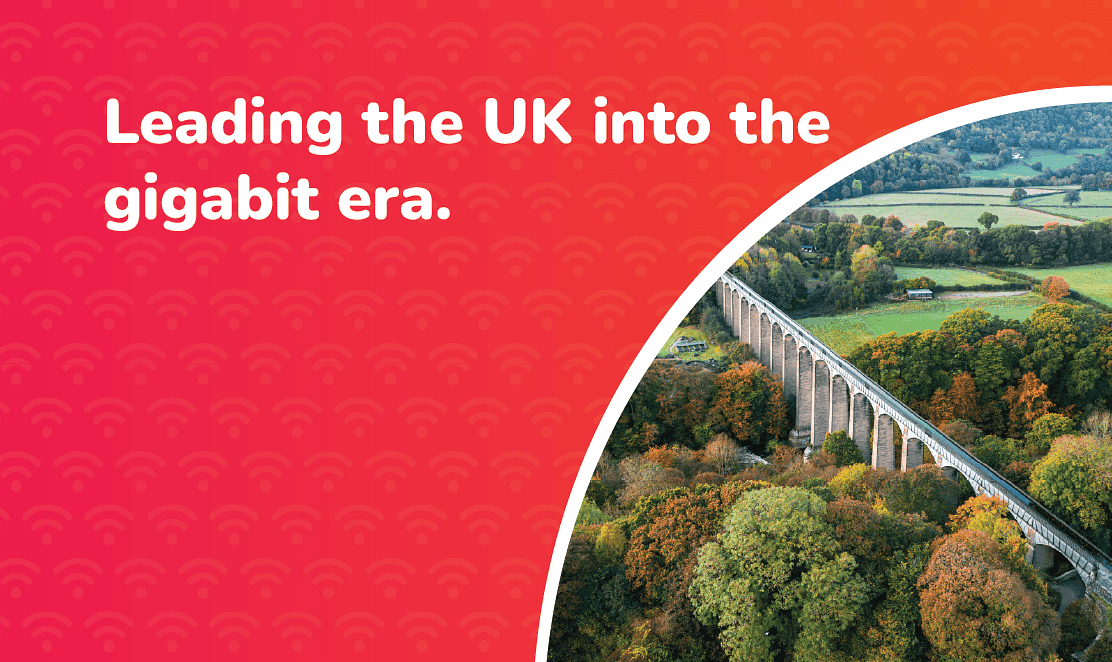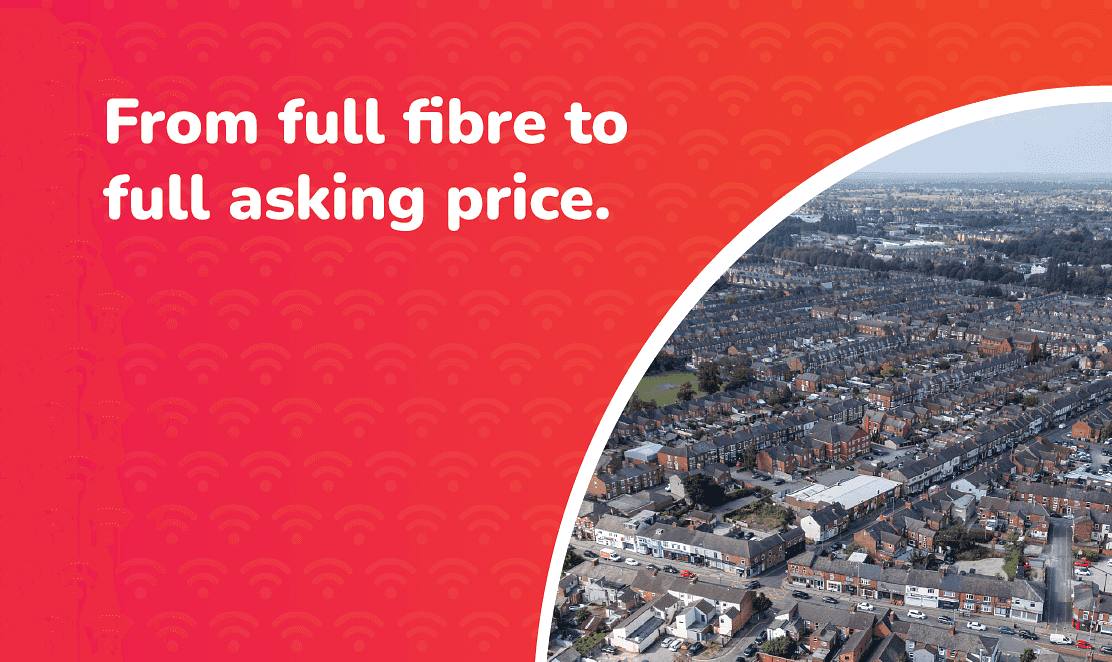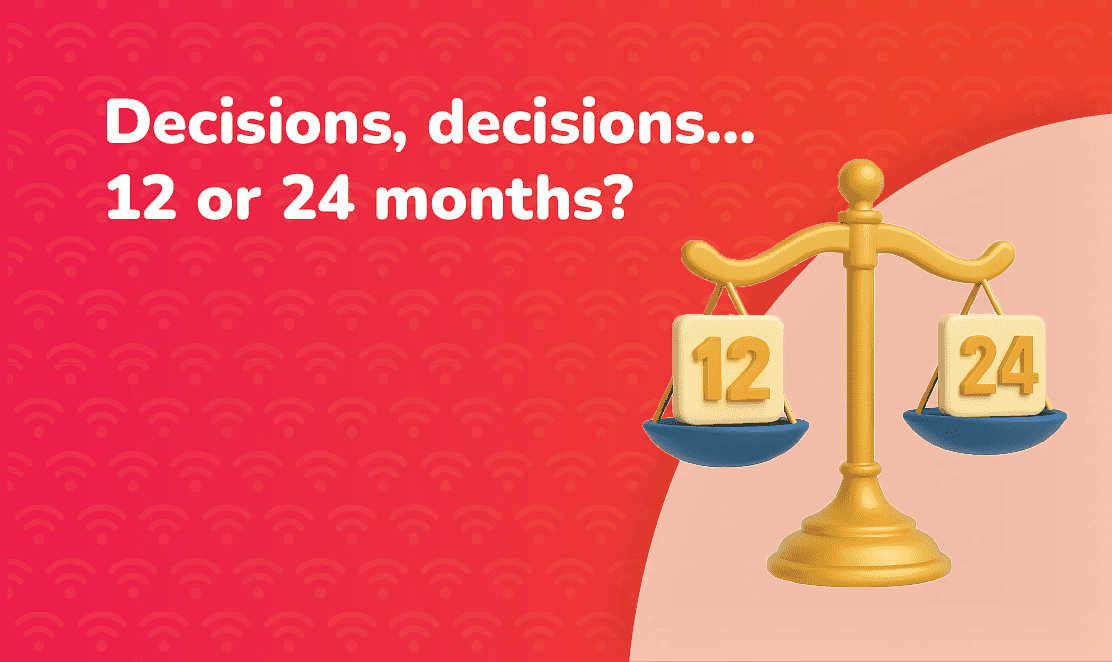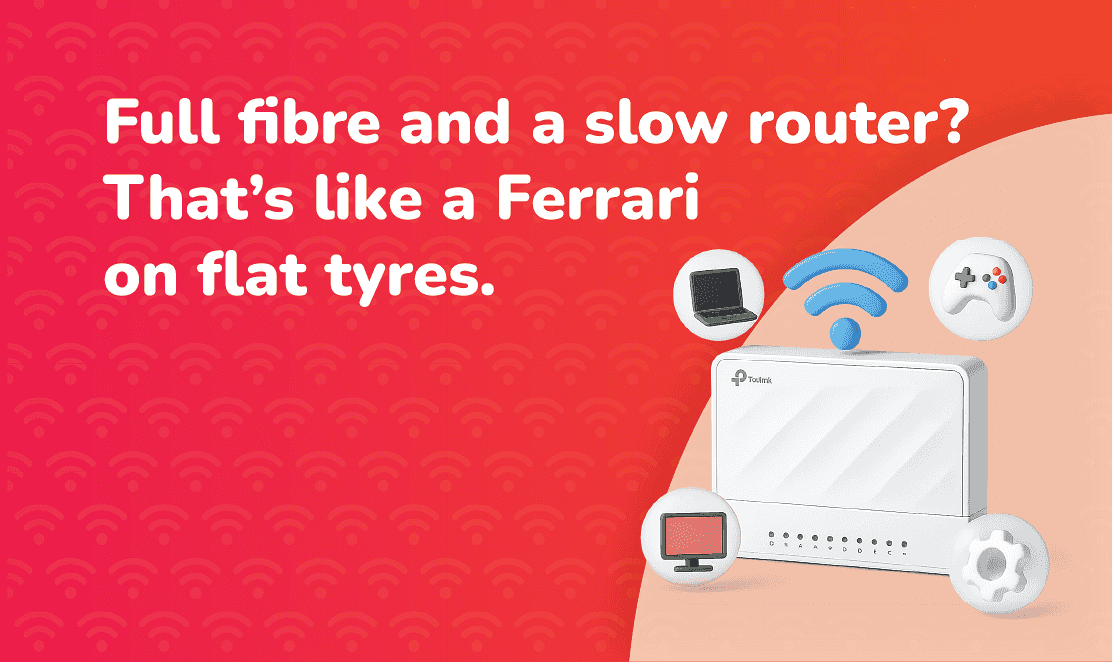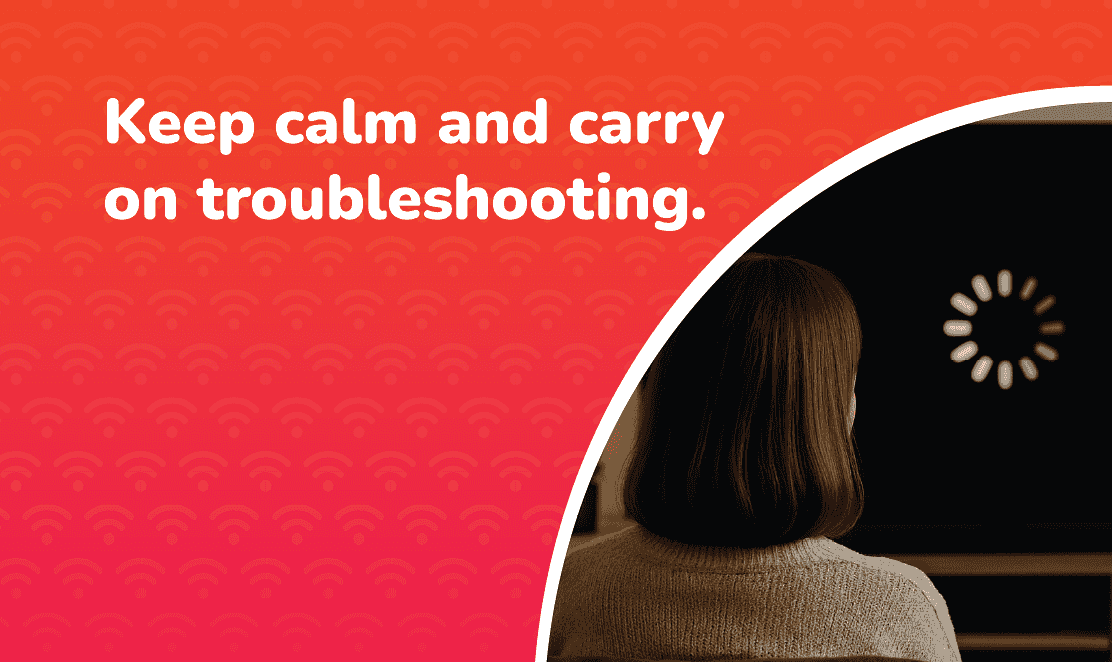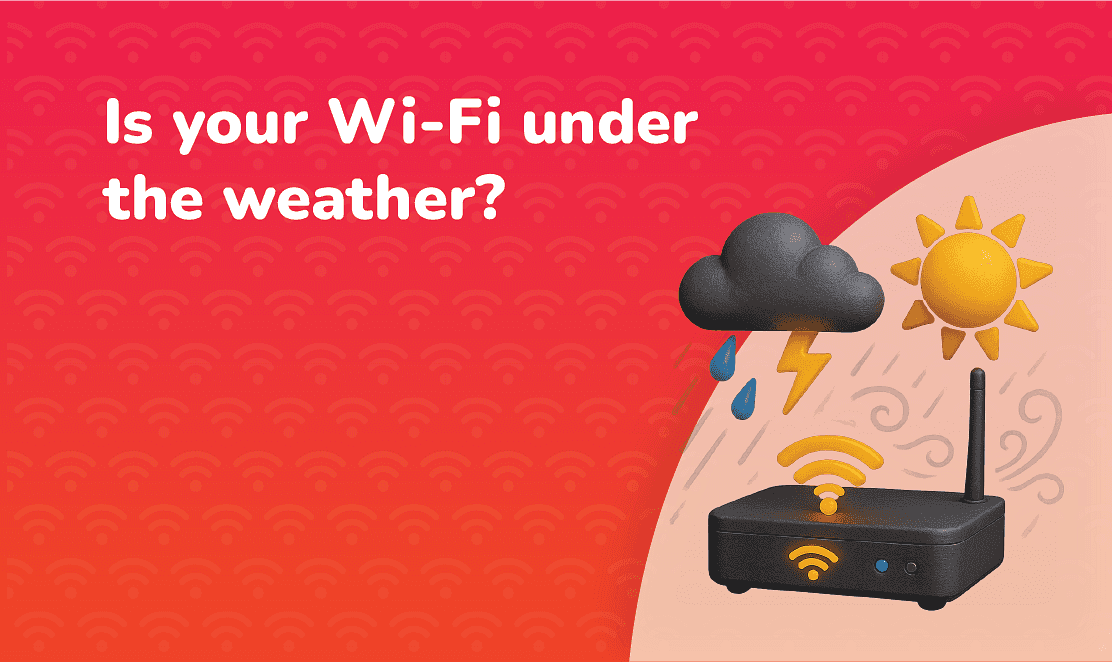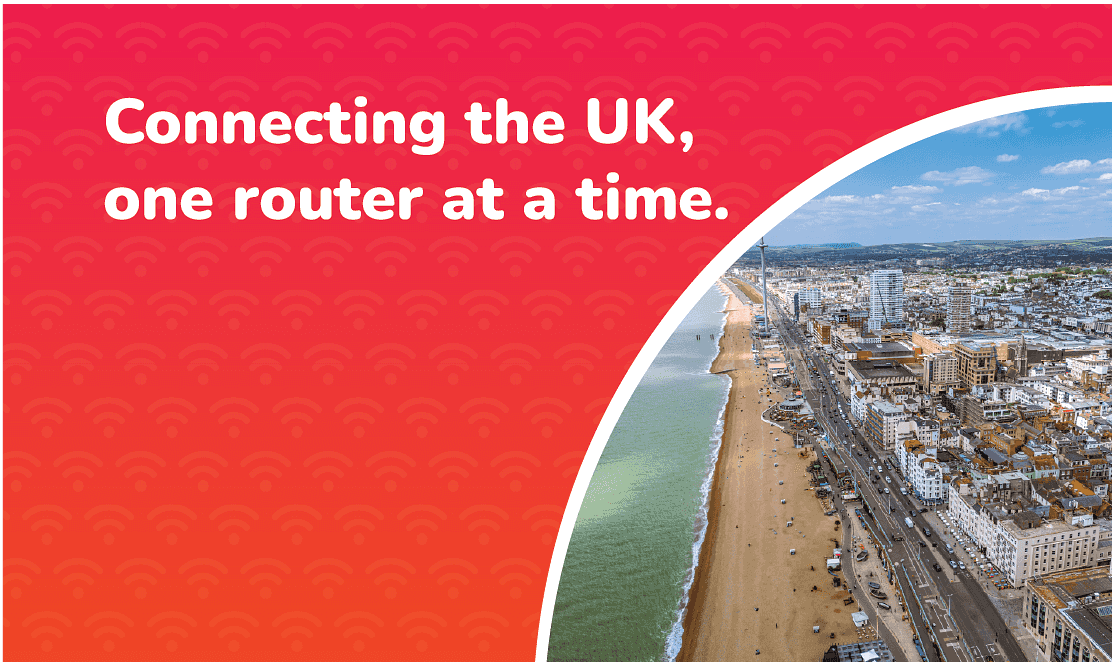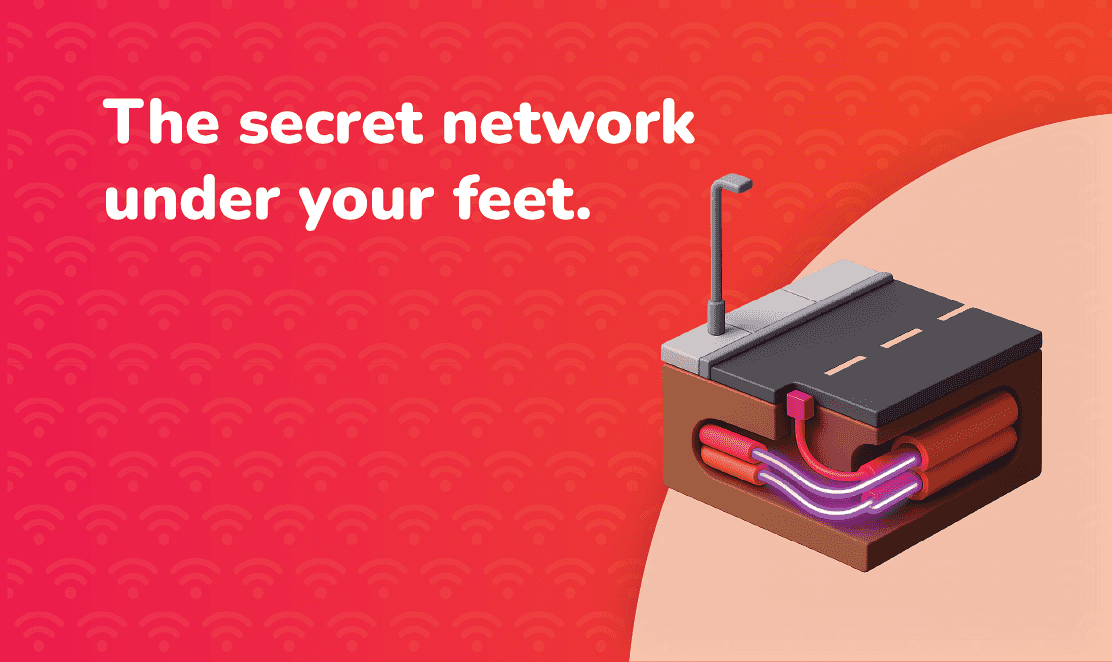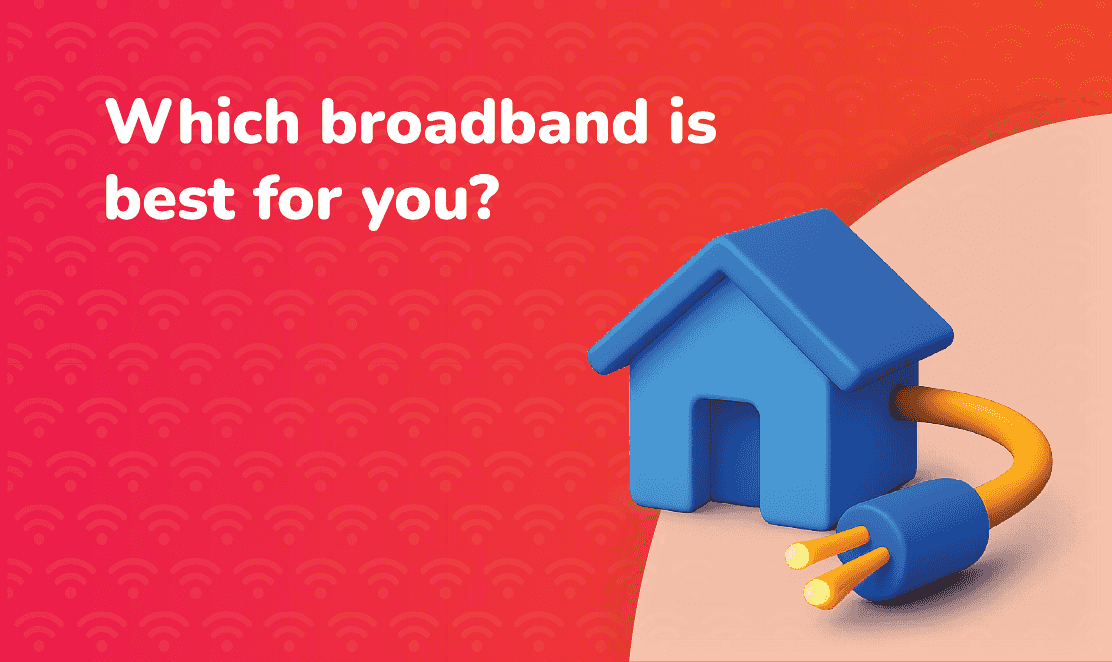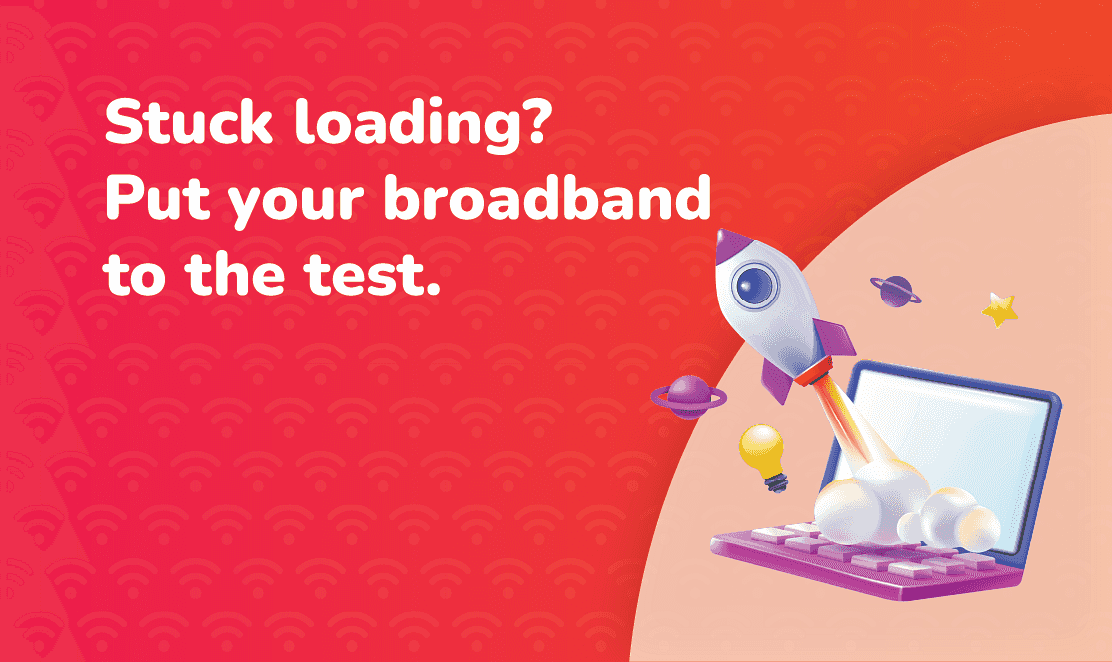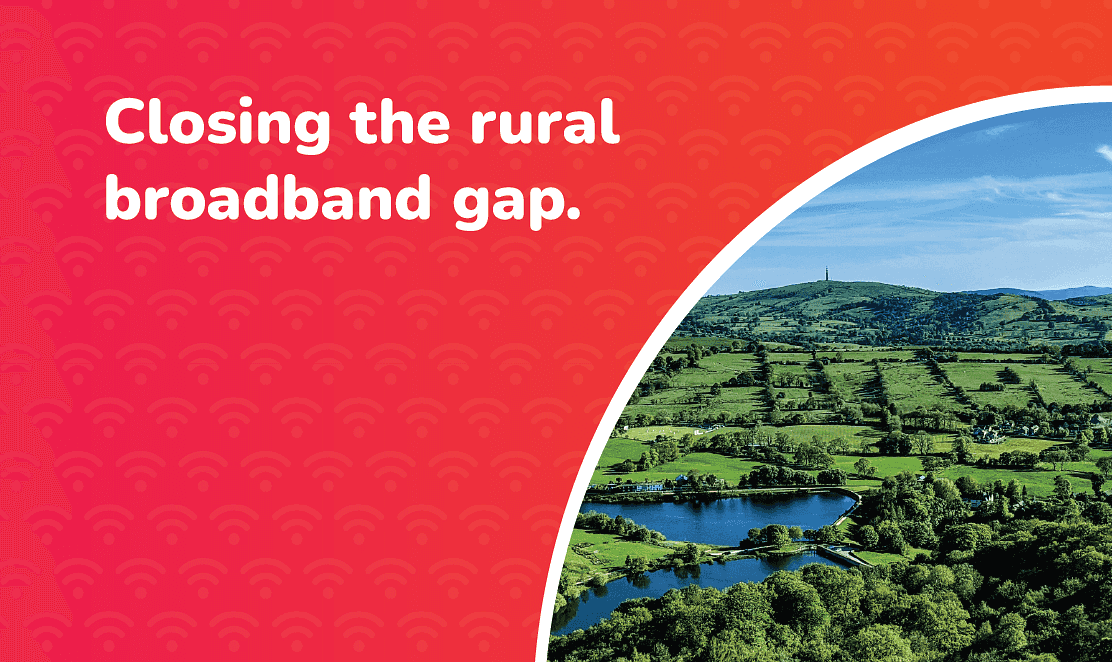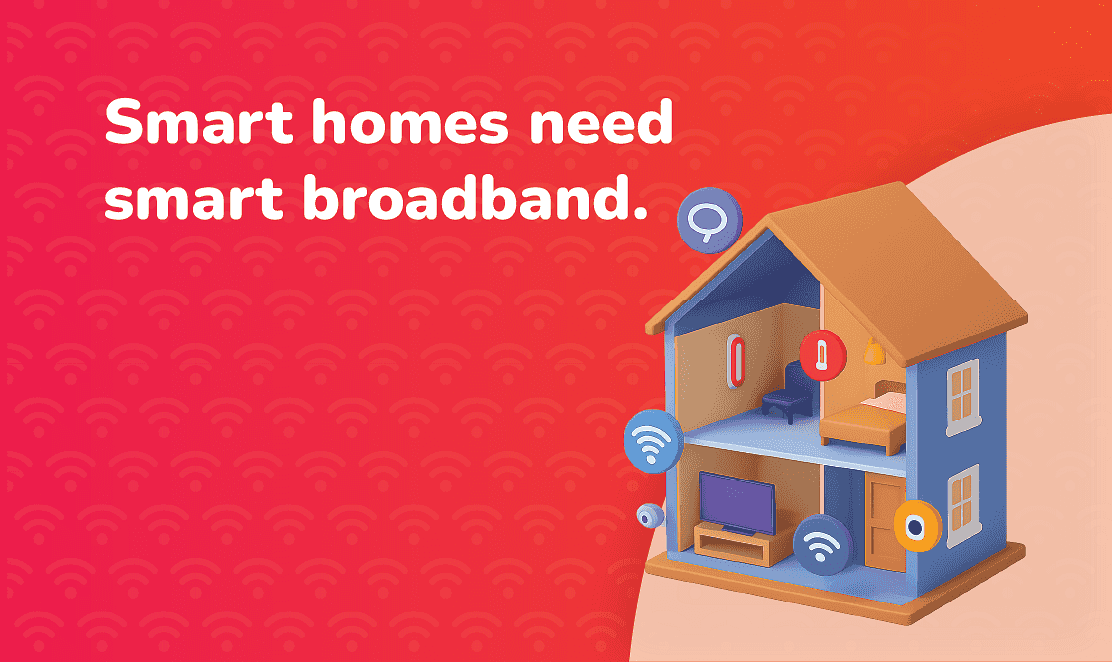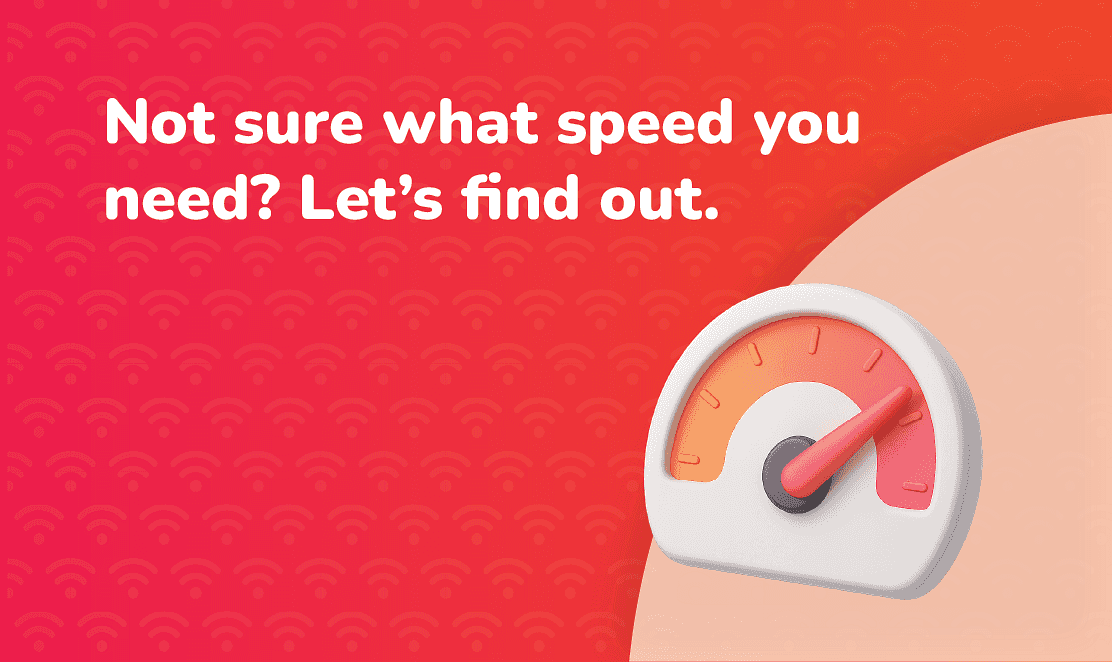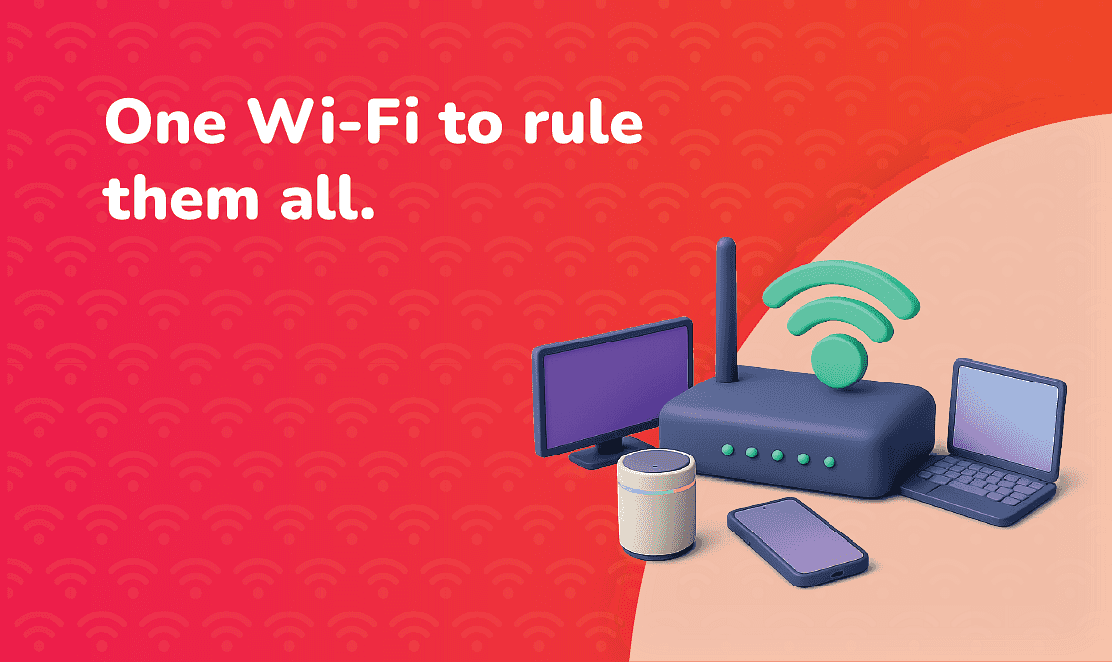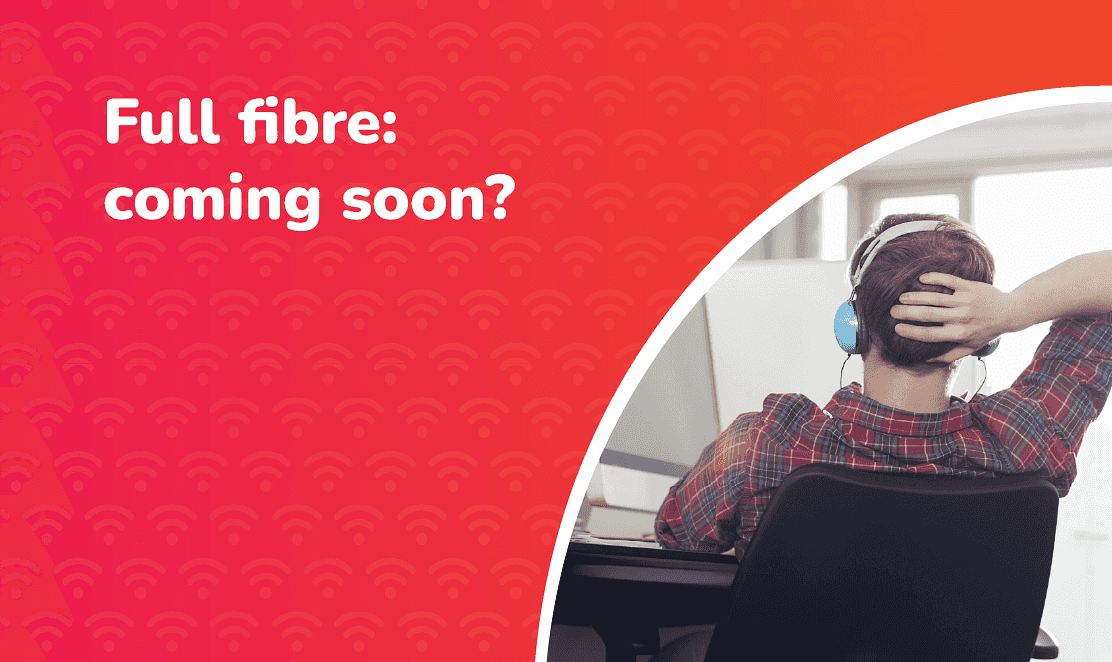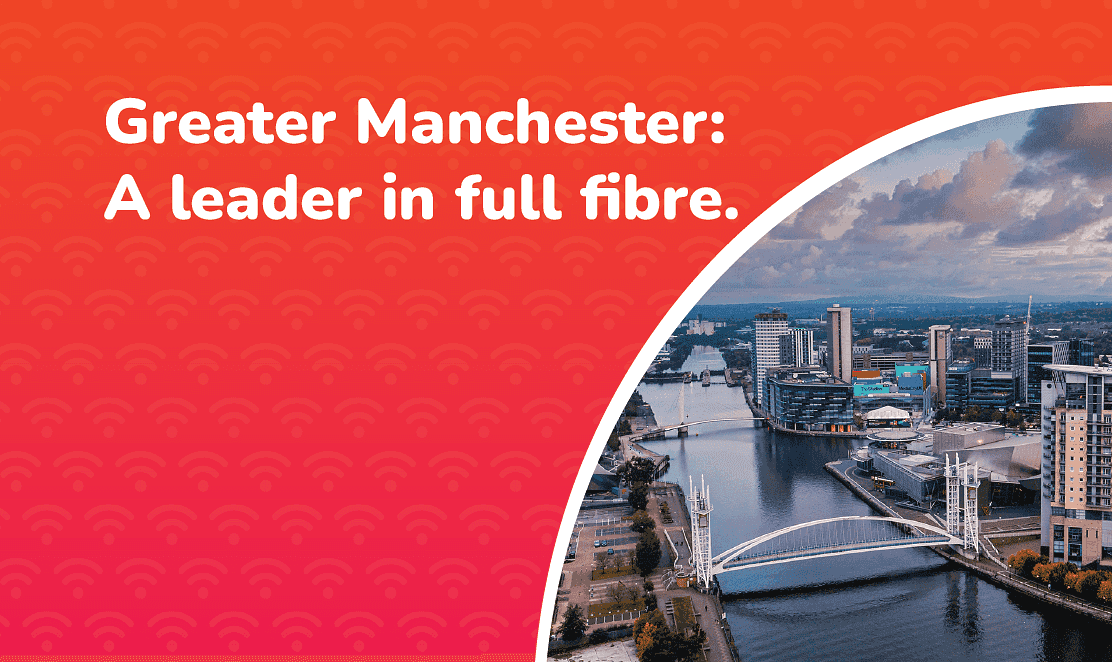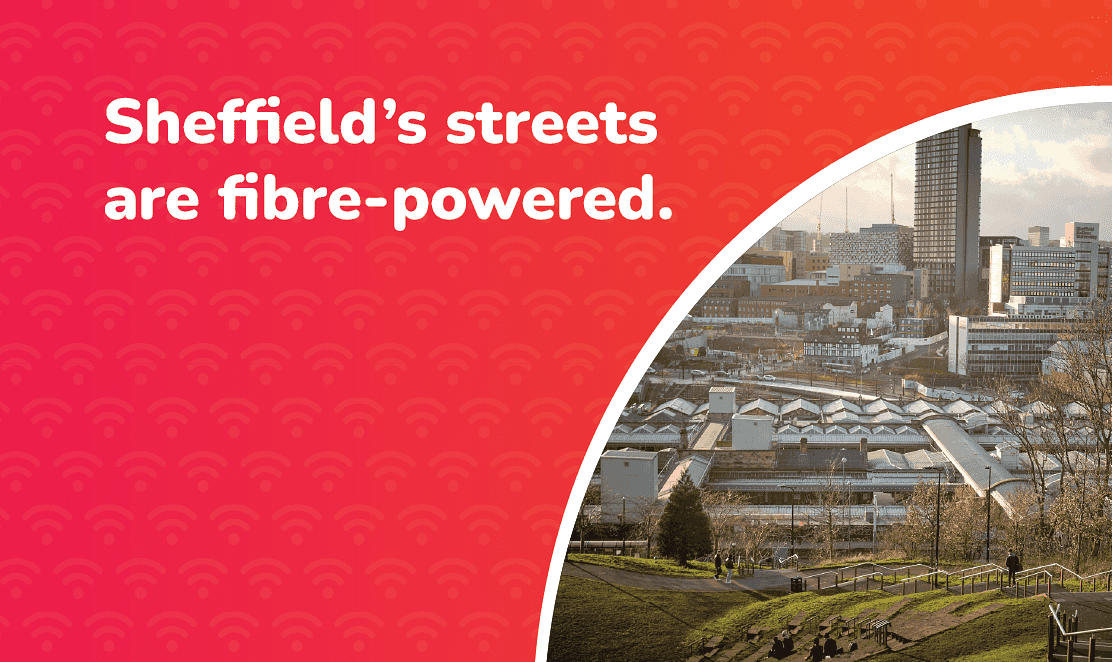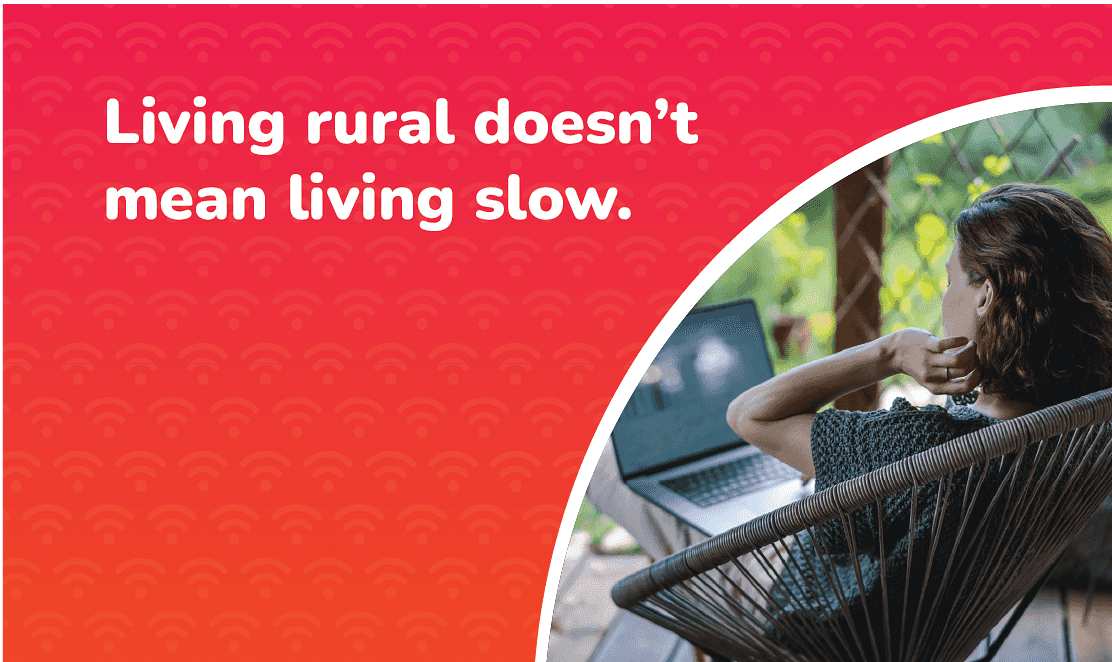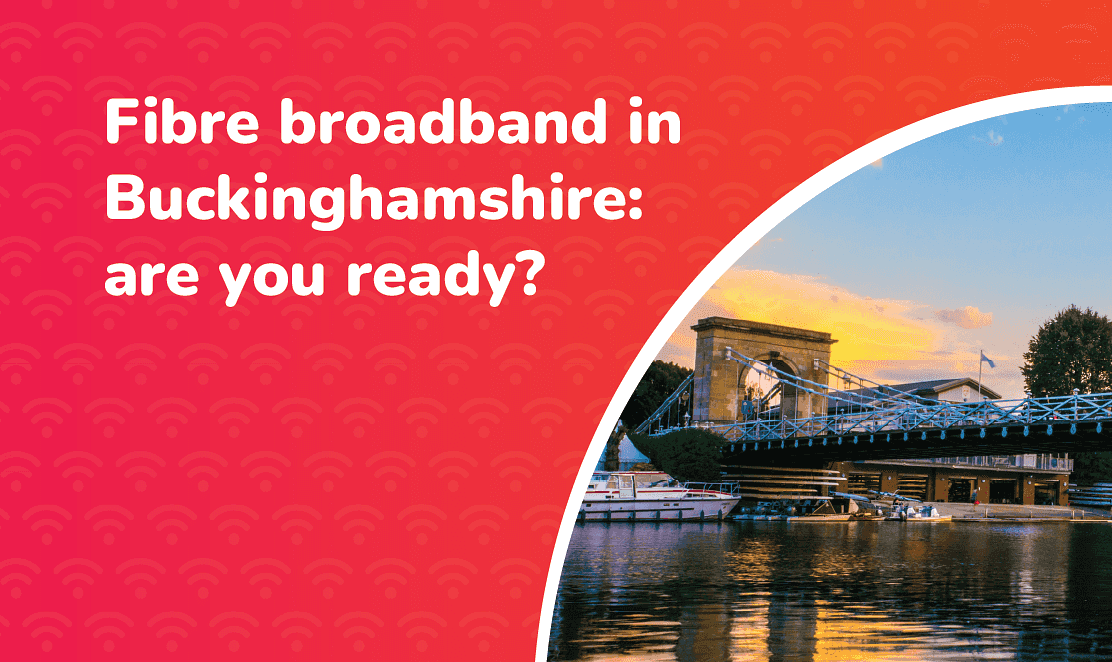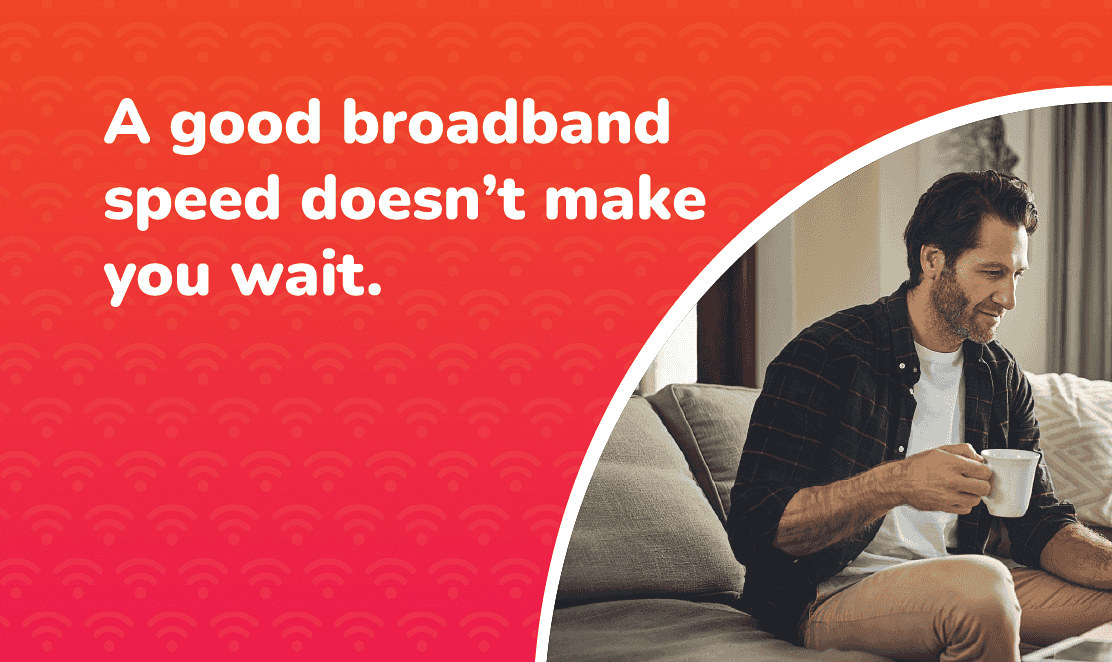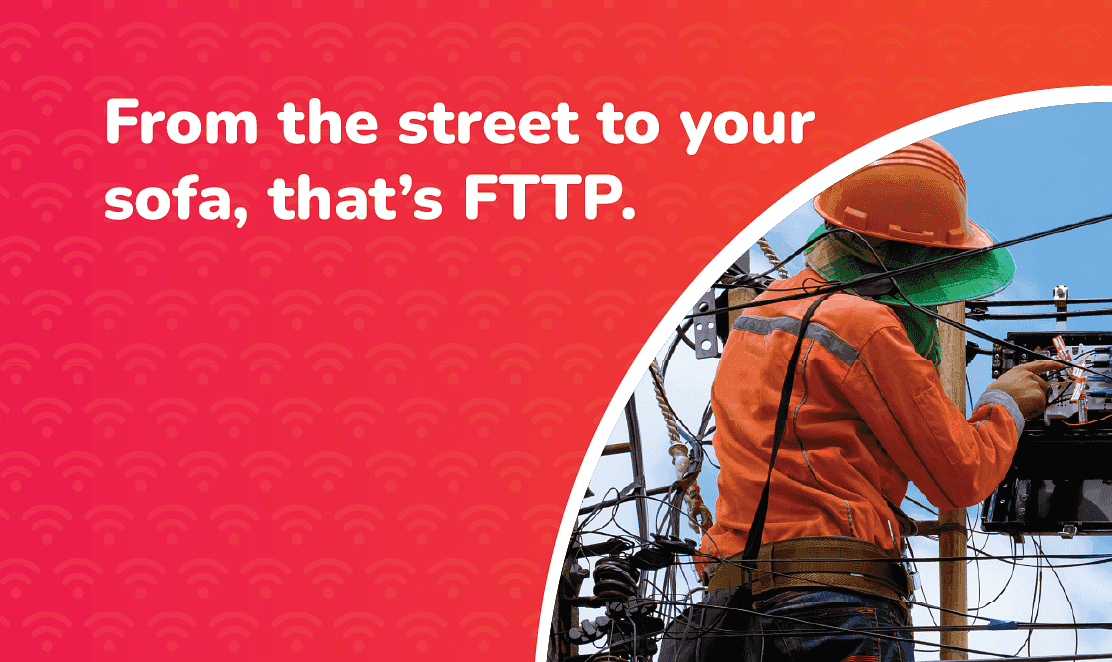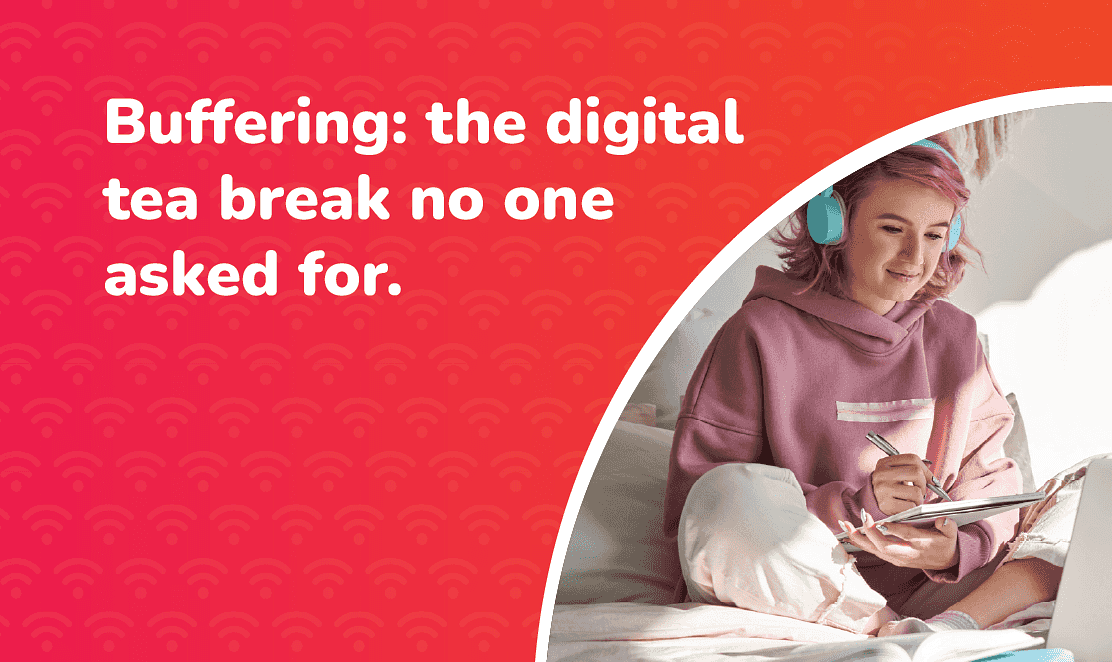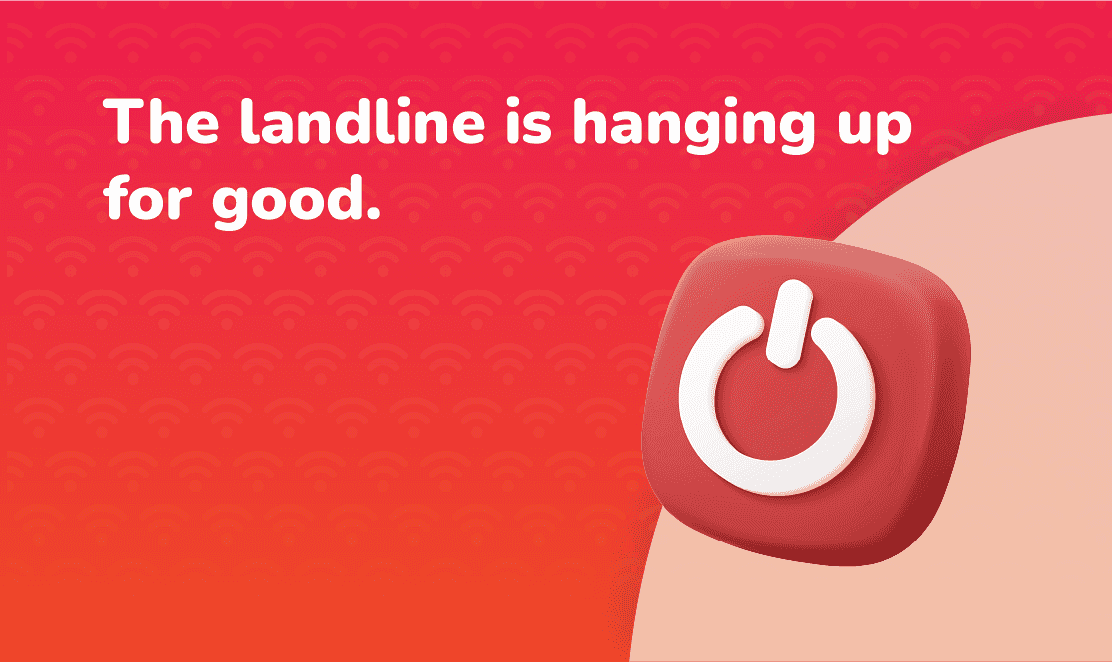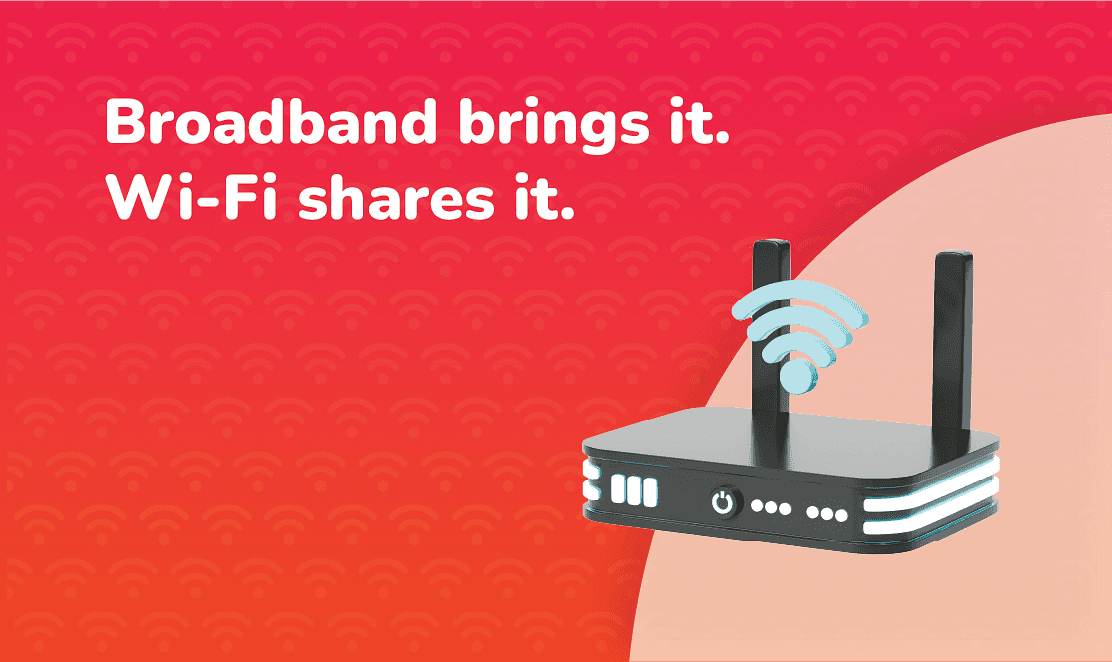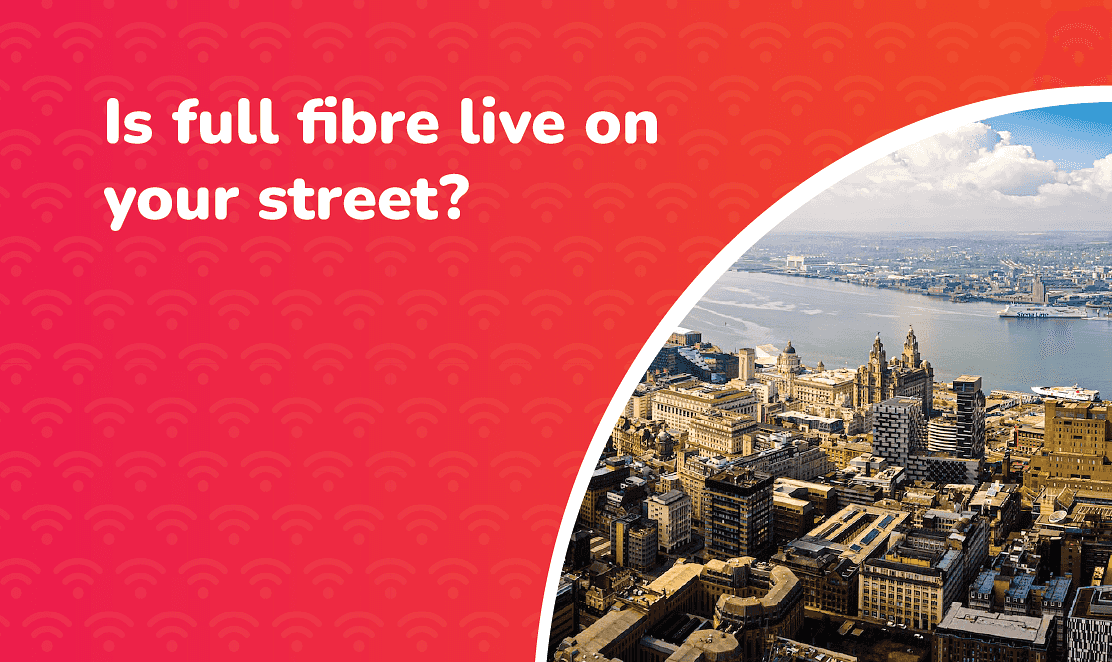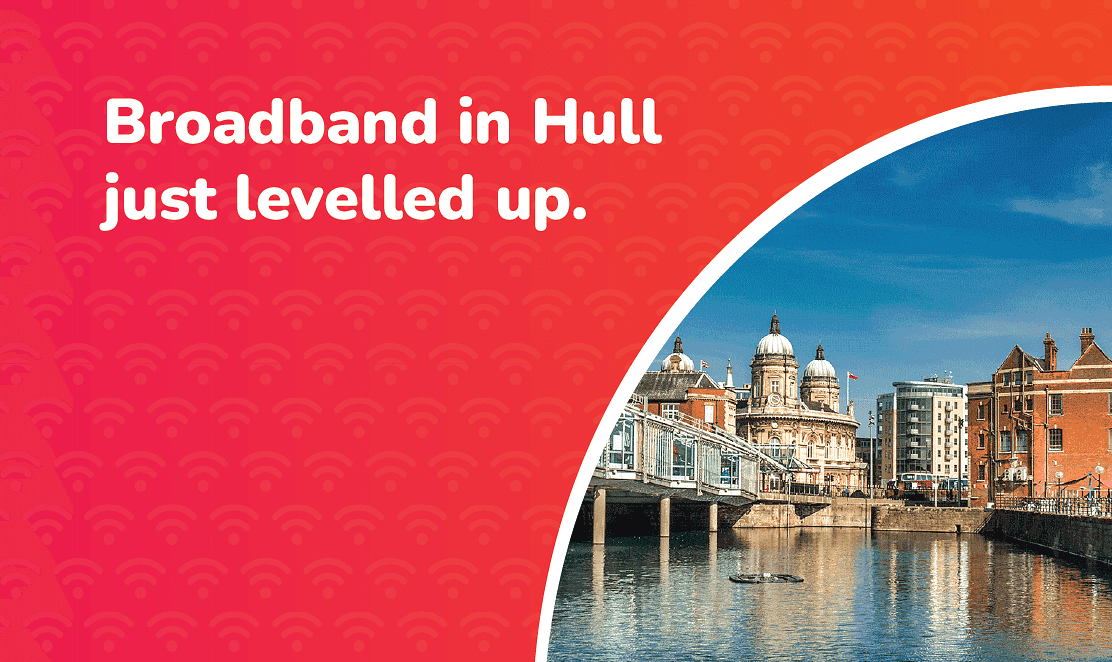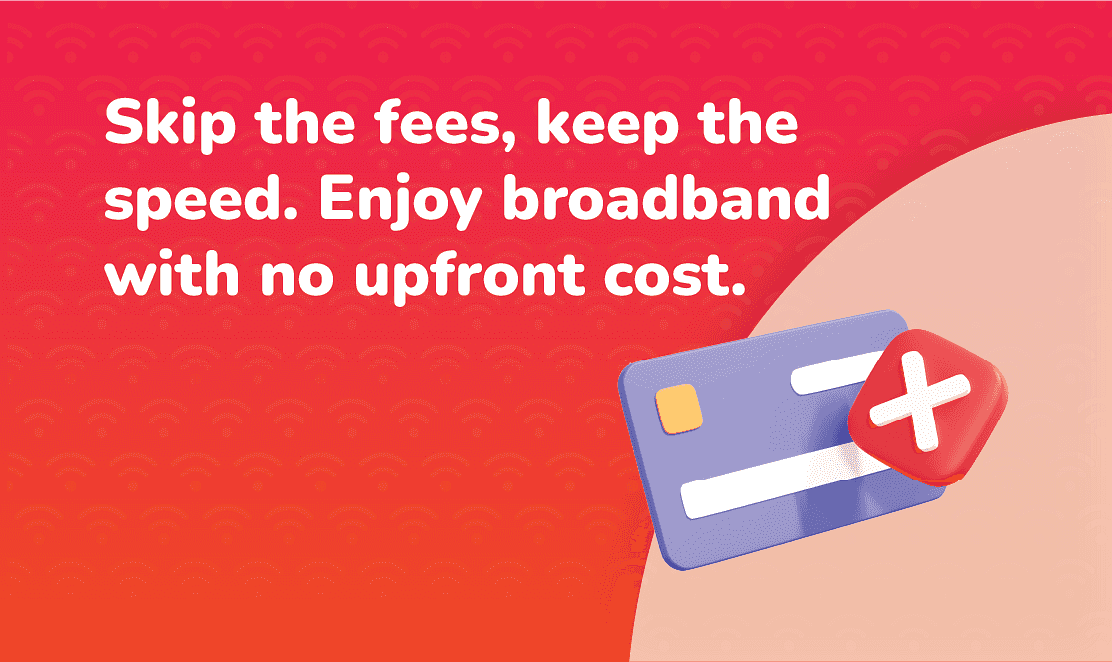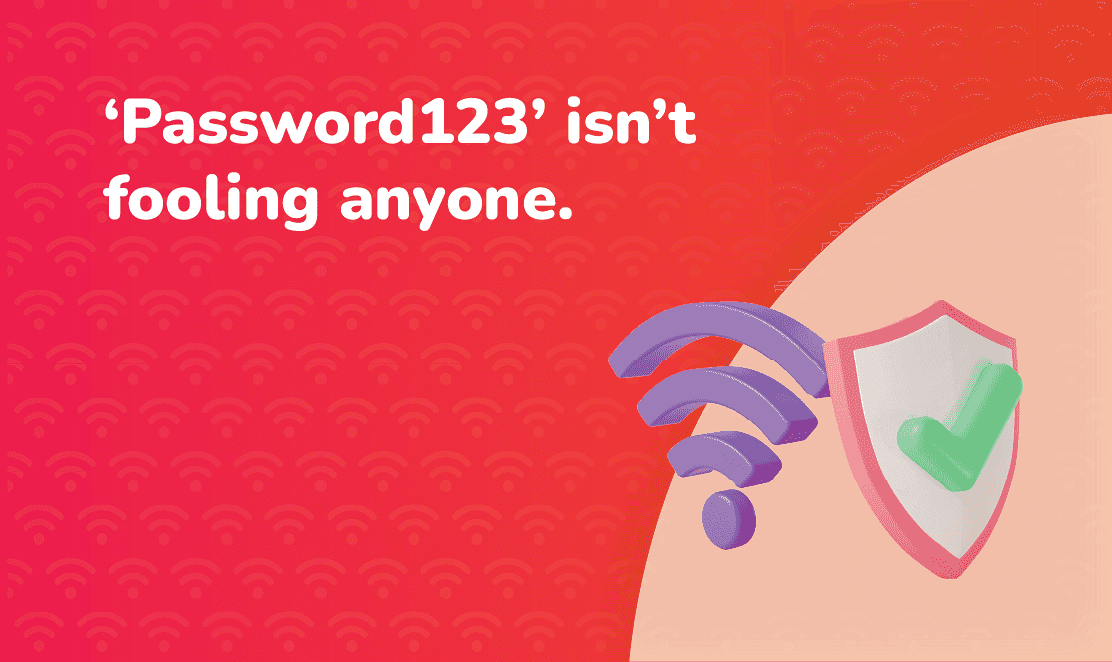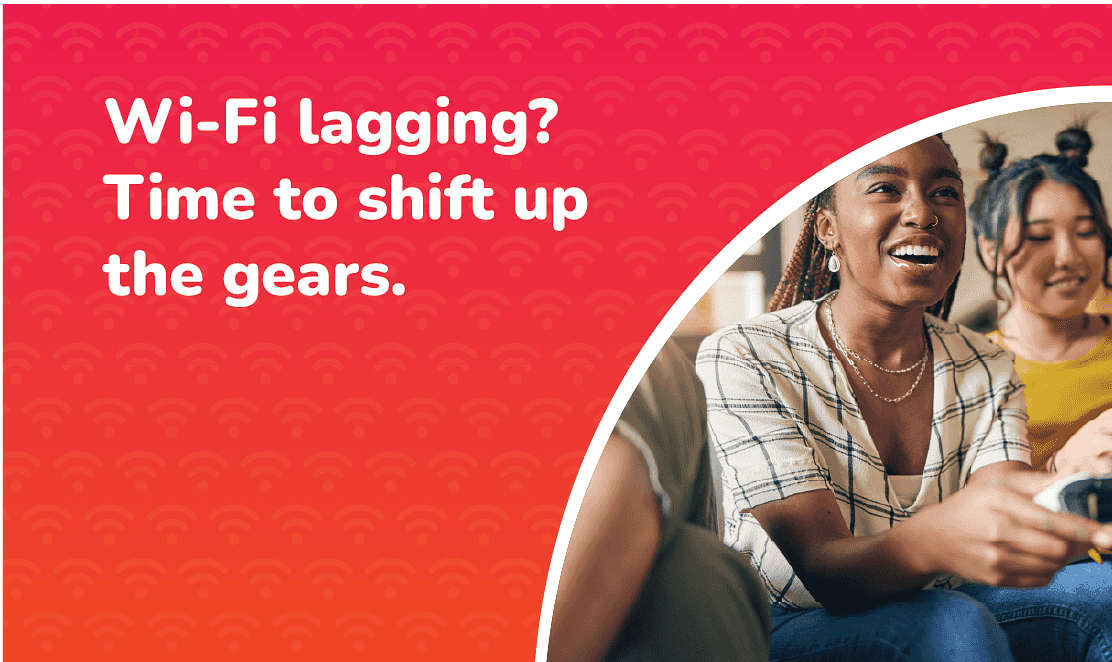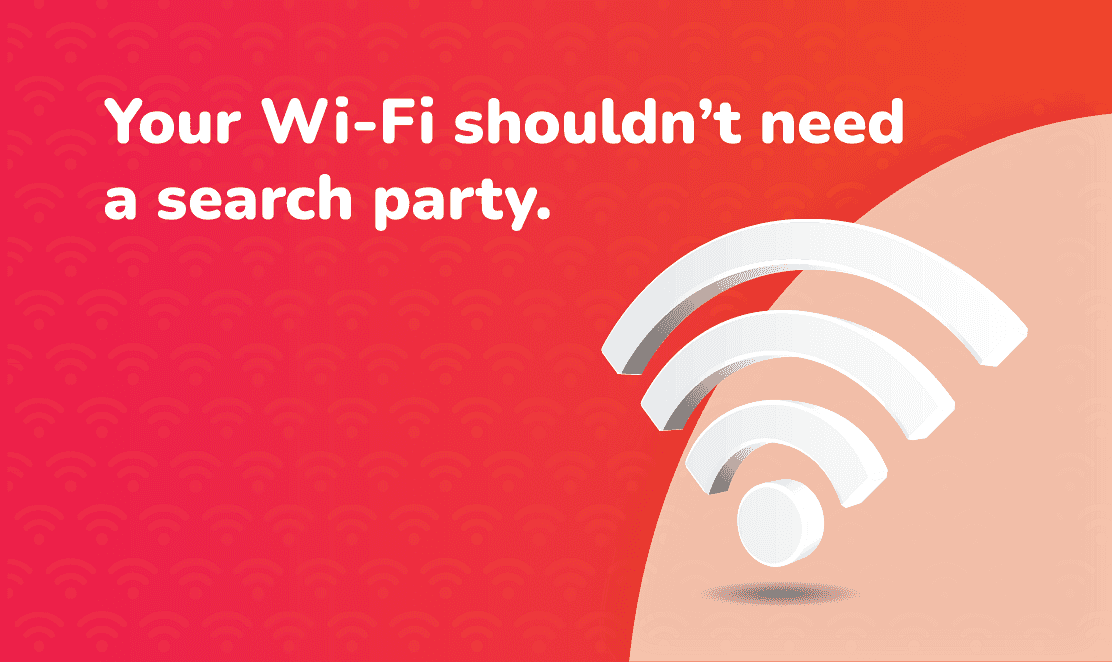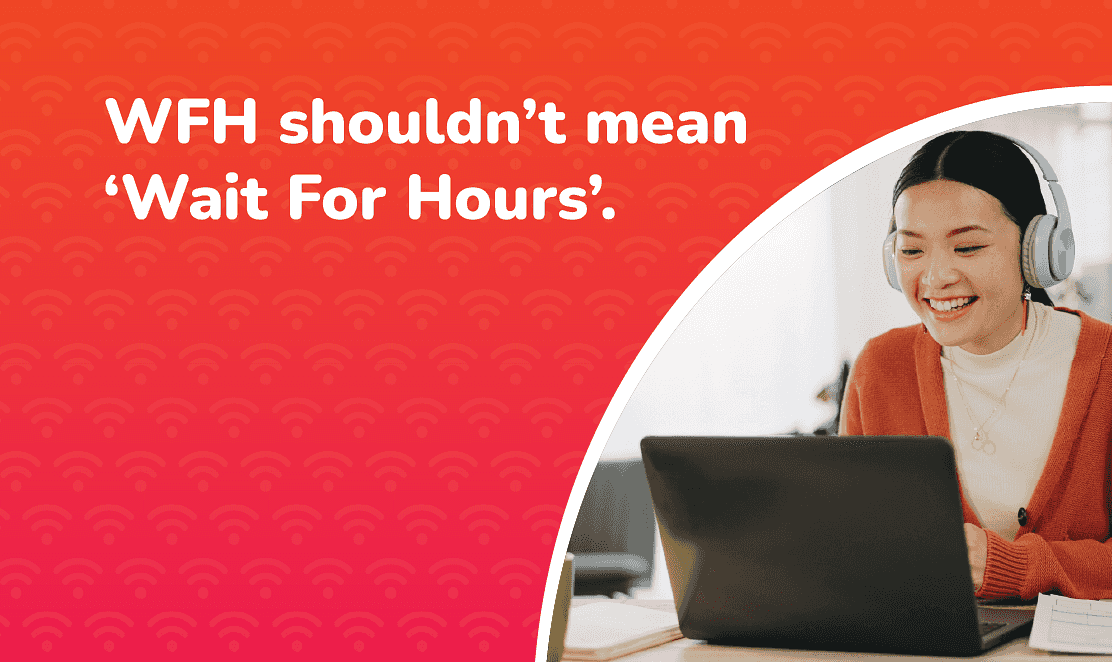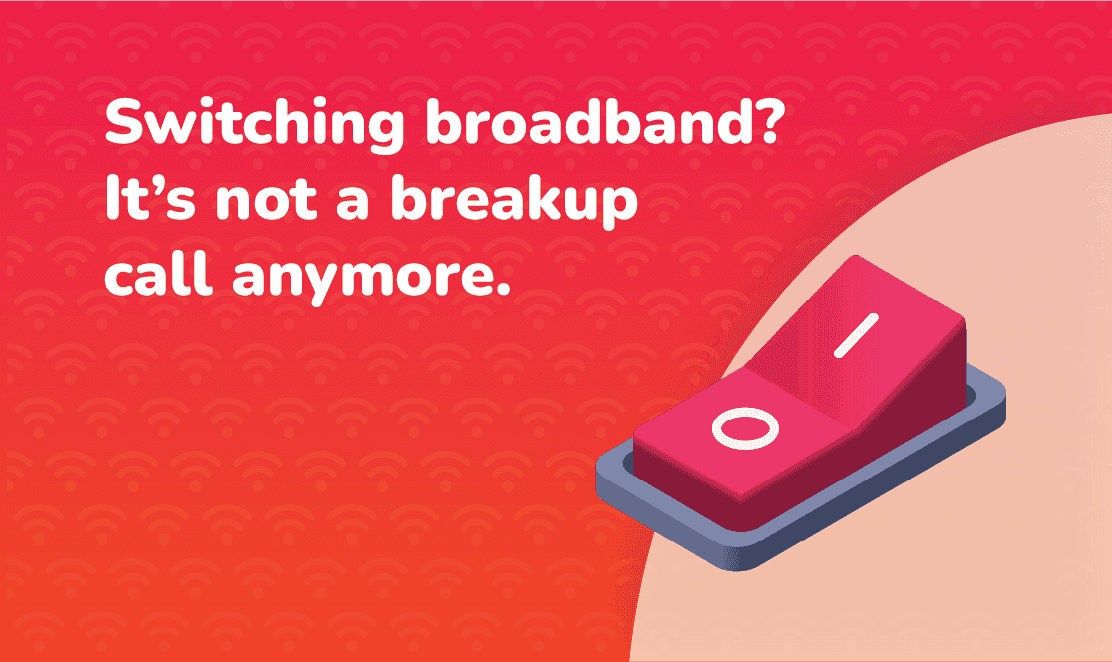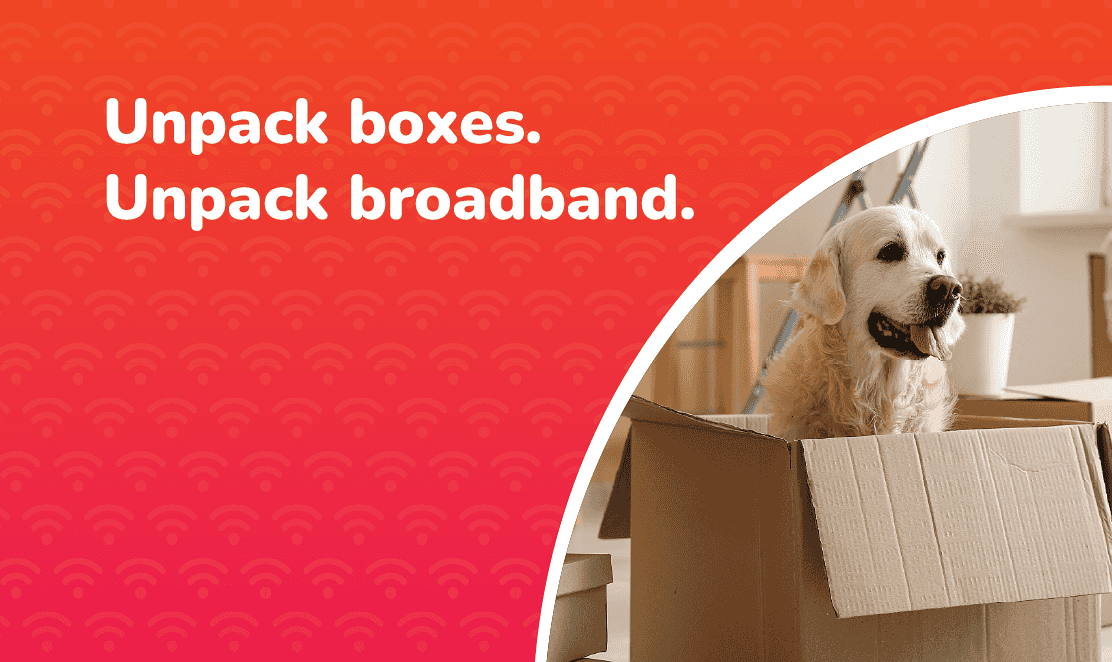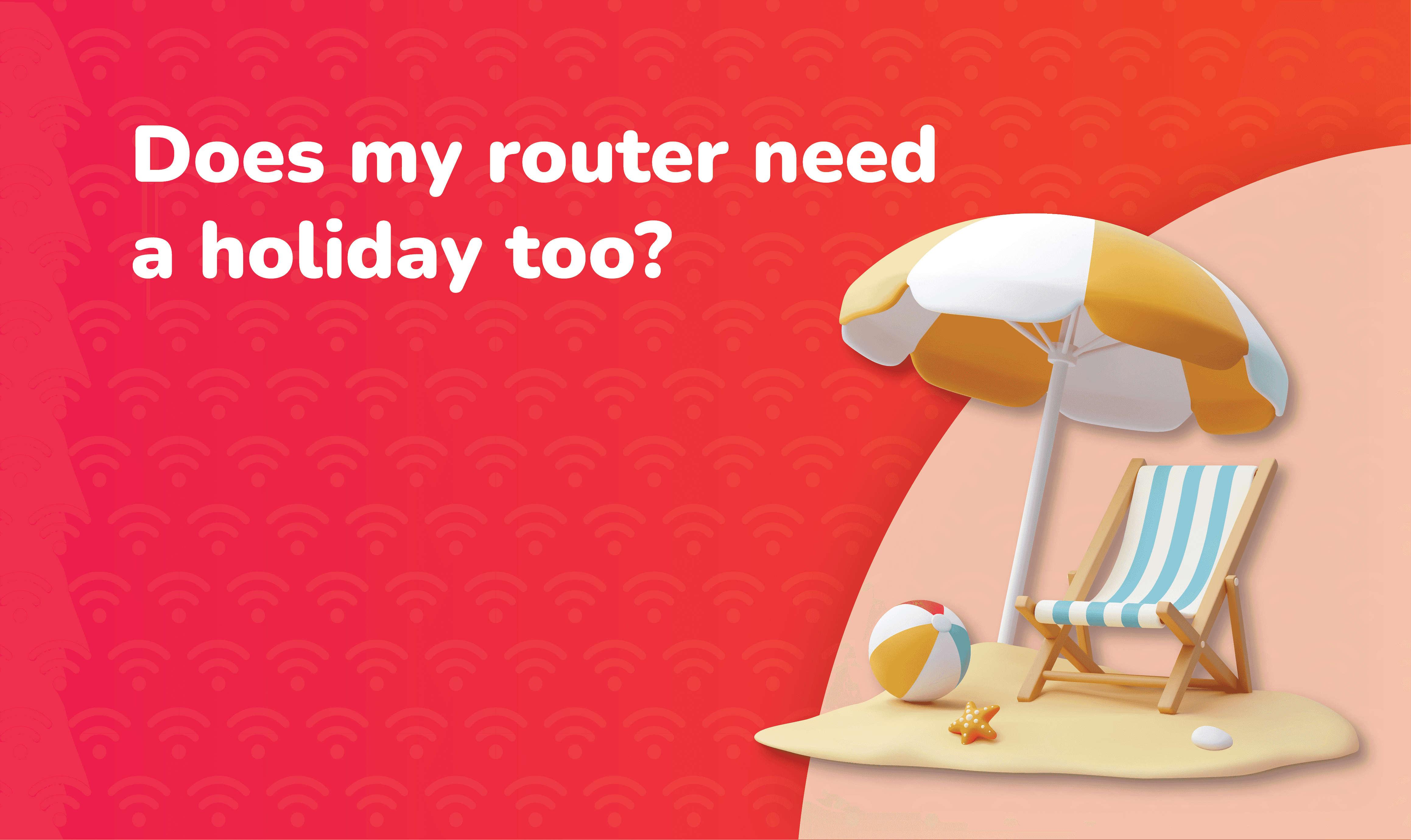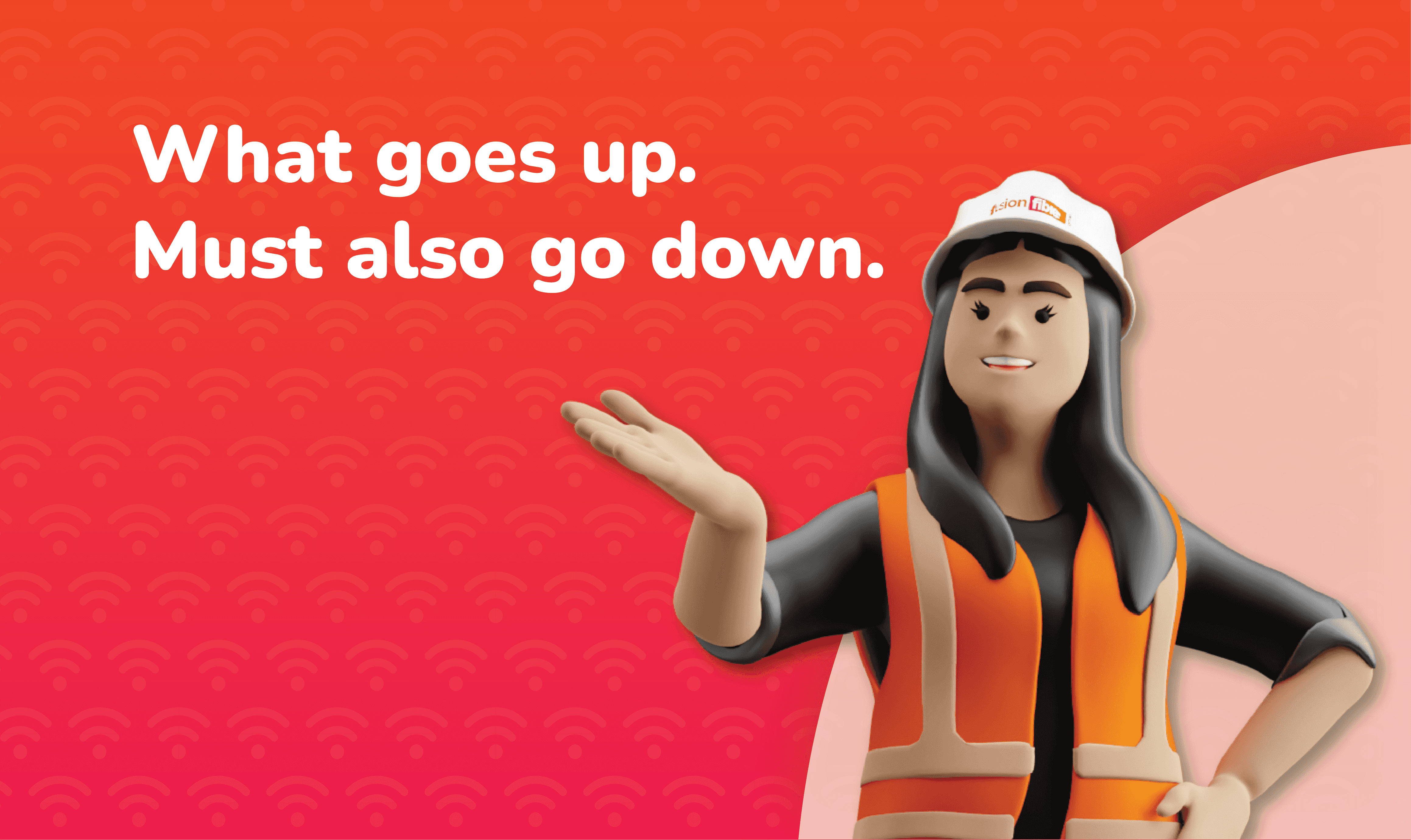Reading time: 7 minutes
We’ve all been there: tempted by the promise of ultrafast broadband speeds that claim to fix every internet frustration. The reality is that speed alone doesn’t stop a Teams call from freezing mid-sentence, prevent buffering on Netflix, or guarantee smooth online gaming. The truth is, when it comes to choosing the best broadband provider in the UK, speed is only one piece of the puzzle.
In this guide, we will explore why broadband reliability matters just as much as speed, the role of latency and coverage, and how to pick a package that delivers real value for your household.
Why Speed Isn’t the Full Story
When shopping for broadband, the first thing most people look at is the speed. Faster is always better, right? Not quite. While download and upload speeds are important, download vs upload speeds aren’t the only factors that shape your online experience. In fact, many households with so-called fast packages still experience buffering, dropped connections, or frustrating delays.
According to Ofcom research, speed, reliability, and value for money top the list of broadband satisfaction drivers. Reliability consistently stands out as a strength, while speed and value often fall short. Consumer watchdog Which? further supports this, showing that fibre broadband, particularly full fibre (FTTP), not only boosts speed but also delivers far more consistent performance than copper-based or part-fibre connections.
Broadband Reliability vs Speed: Why Stability Matters
What good is ultrafast broadband if it keeps cutting out? Reliability is one of the most overlooked yet essential parts of a broadband connection. A stable line means fewer interruptions, whether you’re working from home, gaming online, or streaming in 4K.
Full fibre broadband (FTTP) is generally far more reliable than copper-based services, as it isn’t as affected by weather conditions, distance from the exchange, or network congestion. The infrastructure is also expanding rapidly: according to the Financial Times, full fibre broadband coverage in the UK has surged from just 12% in 2020 to over 78% by mid-2025, driven by investment and regulatory changes.
Latency and Ping Times Matter (Especially for Gamers)
Speed isn’t everything for online gamers. Latency, also known as ping, can make or break your experience. High latency means lag, delayed reactions, and frustration during fast-paced online games.
Even outside gaming, low latency improves video calls, cloud computing, and real-time applications. If you’re comparing providers, look for those that specialise in fibre networks with lower ping times. For more detail, check out our guide on the best broadband for gaming.
Broadband Coverage in the UK: Why Availability Matters
Broadband that looks great on paper is only useful if it’s available at your address. Some ultrafast packages are still limited to certain cities or neighbourhoods, so it’s always worth checking before switching.
With the Fusion Fibre Group postcode checker, you can quickly see if full fibre is live in your area. We partner with major UK network providers including CityFibre, Freedom Fibre, F&W Networks, and MS3 Networks to bring ultrafast connectivity to more communities.
From bustling city centres in the north to rural villages in the south, full fibre is reaching more homes than ever. In Glasgow, new neighbourhoods are getting connected every month, while in the Midlands cities like Birmingham are seeing rapid rollout to keep up with demand. Further south, counties such as Hampshire and Surrey are also going live with ultrafast broadband, showing that no matter where you are in the UK, a faster, more reliable connection is on its way.
Research by Deloitte and Opensignal confirms that UK consumers increasingly prioritise stability and reliability over cost, with urban areas enjoying more consistent performance than rural regions.
Price vs. Value: Getting the Right Deal
Speed alone doesn’t determine whether you’re getting good value. Many households overpay for speeds they don’t need, while others opt for cheaper deals but suffer from poor reliability.
The key is finding balance: a package that offers the right speed for your household size and usage, reliable service, strong customer support, and fair pricing with no hidden costs.
Future-Proofing Your Broadband Connection
With the UK’s PSTN switch-off happening in 2027, copper lines will soon be obsolete. That means full fibre broadband is not only a better option today but also the future-proof choice. By switching early, you’ll avoid last-minute disruption and ensure your home is ready for next-generation connectivity. Find out more in our guide on the PSTN switch-off.
The Bigger Picture: Choosing the Right Broadband
When comparing broadband providers, remember that speed is just one part of the equation. Reliability, latency, coverage, support, and overall value are equally important.
At Fusion Fibre Group, we focus on delivering broadband that is fast, reliable, and built for the future. Before you sign up for your next deal, ask yourself: is it just about speed, or is it about the quality of your connection?
Ready to check if full fibre is available at your home? Use our Full Fibre Broadband Availability Checker today and discover ultrafast, reliable broadband built for the future.
Frequently Asked Questions
Is broadband speed more important than reliability?
Not always. While fast speeds are great for streaming and downloading, reliability often matters more in daily use. A stable connection without dropouts is usually better than ultrafast broadband that cuts out regularly.
Why is latency important in broadband?
Latency, often called ping, is the time it takes for data to travel between your device and the internet. Low latency is crucial for online gaming, video calls, and real-time apps, as it reduces lag and delays.
How can I check broadband availability in my area?
You can use the Fusion Fibre Group postcode checker to see if ultrafast broadband is live on your street.
Will copper broadband be switched off in the UK?
Yes. The UK’s copper landline and broadband network will be phased out by 2027 during the PSTN switch-off. After this date, only fibre-based services will remain, making full fibre the future-proof choice.
What factors should I look for in a broadband provider besides speed?
When choosing a broadband provider, look for reliability, coverage in your area, pricing transparency, and latency performance. These factors often make more difference than raw speed.


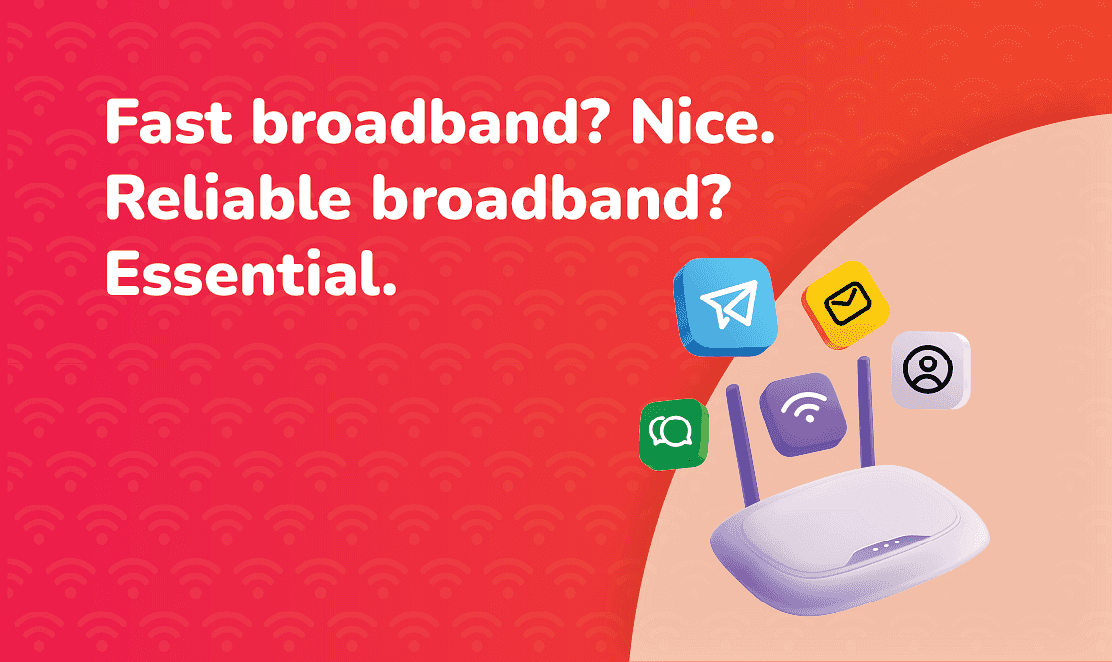 No image Big Thumb
No image Big Thumb 